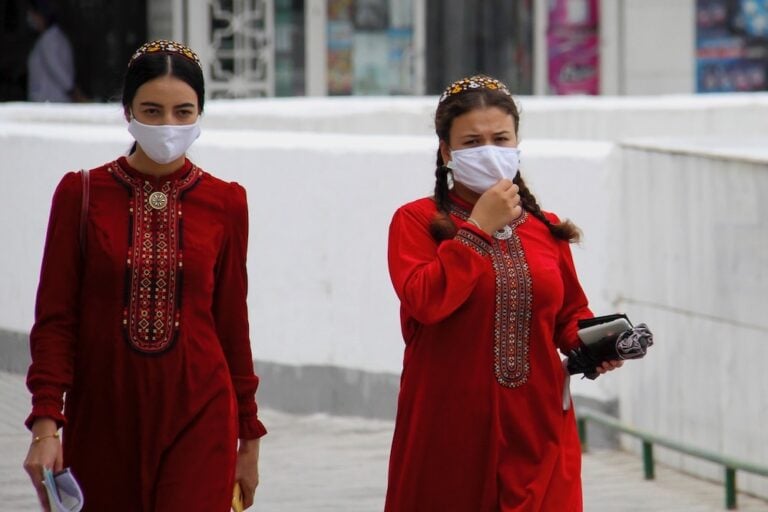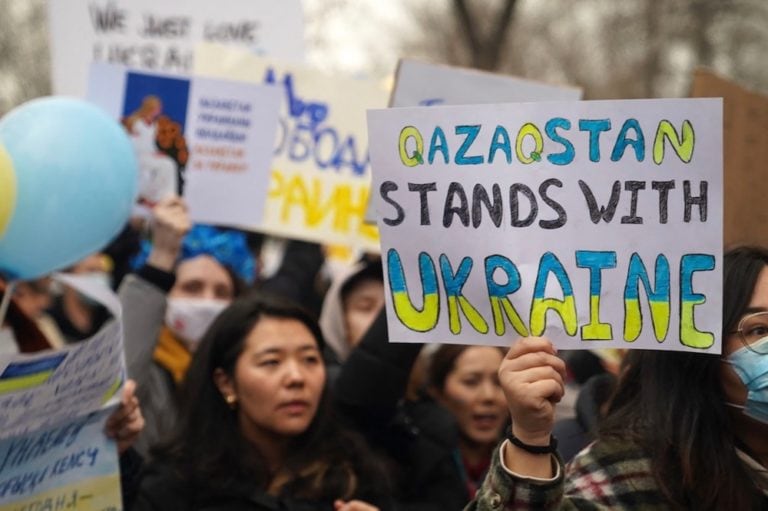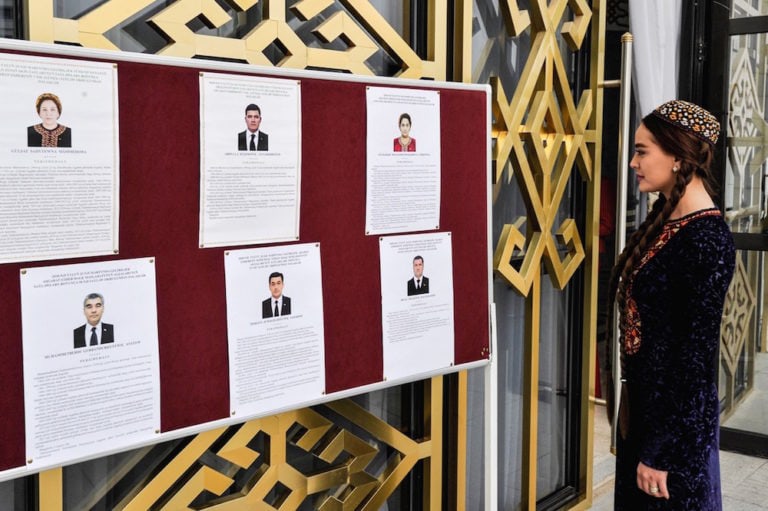(RSF/IFEX) – RSF has called for the release of two Radio Free Europe (RFE) journalists and writers, Rakhim Esenov and Ashyrguly Bayryev, who were arrested by National Security Ministry (NSM) agents on 26 February and 1 March 2004, respectively. It is feared they could be tortured or mistreated in detention. In a letter to President […]
(RSF/IFEX) – RSF has called for the release of two Radio Free Europe (RFE) journalists and writers, Rakhim Esenov and Ashyrguly Bayryev, who were arrested by National Security Ministry (NSM) agents on 26 February and 1 March 2004, respectively. It is feared they could be tortured or mistreated in detention.
In a letter to President Separmurat Nyazov, RSF expressed indignation over the arrests. The organisation said it was particularly concerned about Esenov’s state of health and would hold the authorities responsible should anything happen to him in detention.
The 78-year-old journalist suffers from heart problems and had a heart attack after being interrogated on 23 February. He was first placed in intensive care in hospital, but was moved to the NSM prison in Achkhabad on 26 February.
The authorities initially accused Esenov of “smuggling” for bringing copies of his historical novel, set in the 16th century, into the country. His novel was published in Russia. President Nyazov blocked publication of the book for 10 years on the grounds that it contained “historical errors,” which he unsuccessfully tried to have changed.
Esenov was then accused of “incitement to social, ethnic and religious hatred”, an offence that carries a four-year jail sentence under Article 177 of the Criminal Code. His son-in-law, Igor Kaprielov, was also arrested.
Bayryev, aged 50, was interrogated on 1 March before being transferred to the NSM prison. The official reasons for his arrest are unknown. However, the head of RFE’s Turkmenistan service, Naz Nazar, said she was convinced that both journalists were arrested because of their work with the station, which is known for its commitment to democratic values.
Nazar remarked that the authorities had been harassing RFE on a regular basis. In 2003, another RFE journalist, Saparmurat Ovezberdiev, was illegally arrested on two separate occasions by security forces who beat, threatened and drugged him (see IFEX alert of 26 November 2003).
Turkmenistan, which placed 158th out of 166 countries in RSF’s 2003 world press freedom ranking, is one of the most repressive countries in the world for journalists.


